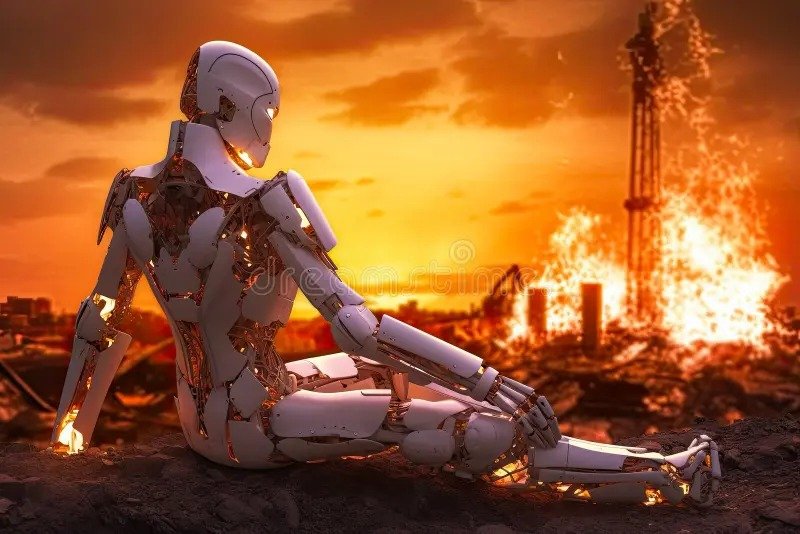What? AI Will Rain Fire Balls On The Earth The intersection of AI technology and climate change presents a complex and nuanced landscape. While some view AI as a crucial tool in addressing a spectrum of environmental challenges, from ecological preservation to disaster management, concerns persist regarding its potential to deplete resources and exacerbate energy crises.
The ultimate trajectory hinges on how effectively AI is integrated into sustainable practices and renewable energy initiatives. The quest to discern whether AI will steer humanity towards a renewable future or contribute to resource depletion underscores a pressing inquiry in contemporary discourse.
Major companies like Microsoft are investing substantial sums, amounting to millions and even trillions of dollars, in establishing new data centers in desert regions and developing high-performance “Supercomputers,” equipped with specialized chips tailored for intensive AI computations, in collaboration with entities like OpenAI. However, a growing number of researchers caution that this extensive utilization of electricity and power is inherently unsustainable.
The escalating demand for electricity and power by AI systems is expected to continue rising, with no apparent solution in sight. Robert Stoner, director of the Tata Center for Technology and Design at the university, highlights the concerning trend whereby tech firms are depleting existing electricity resources at a rate that outpaces additions to the grid infrastructure.
Several tech giants are increasingly engaging in power purchase agreements (PPAs), wherein third-party providers furnish energy, often sourced from renewables, to corporations such as Microsoft and Google. While these companies demonstrate a willingness to procure electricity through such arrangements, a key concern arises: they are essentially competing for renewable energy resources that could otherwise benefit broader communities.
The crux of the issue lies in the imbalance between energy consumption and the addition of new sources to the grid. While the consumption of vast amounts of energy by AI systems may not inherently pose a significant problem, the lack of concurrent efforts to expand renewable energy infrastructure represents a substantial challenge. The overarching question persists: is AI contributing to the degradation of our planet, or is it propelling us toward a more sustainable trajectory of development?
Addressing the challenge of meeting AI’s energy demands sustainably necessitates a significant expansion of the global renewable energy infrastructure. However, implementing this solution is far from straightforward. The process of adding new renewable energy sources involves navigating a complex “interconnect queue,” which typically spans four to five years.
Given the strain placed on resources by companies, it is imperative to prioritize resource management and ensure a balanced approach to energy consumption and environmental stewardship.
Regions such as California and Washington, where AI development and investment are thriving, are facing a pressing challenge: insufficient electricity supply to accommodate the escalating energy demands of data centers.
Elon Musk, CEO of Tesla and founder of xAI, recently warned that the available electricity may not suffice to meet demand as early as next year. Sam Altman, CEO of OpenAI, concurs with this assessment and proposes that breakthroughs in nuclear fusion technology may represent the sole viable solution to effectively address AI’s energy consumption dilemma.
While AI currently poses challenges for the environment, it also holds significant promise for delivering solutions that mitigate our carbon footprint and enhance energy efficiency. By adopting a holistic perspective, we can harness AI’s immense potential to strike a balance, safeguarding the planet rather than causing its destruction.


















